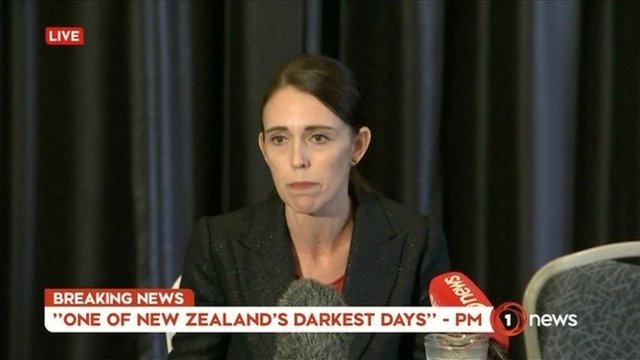
After the terrorist bombing of two New Zealand mosques, which killed 49 people, the country's prime minister, Jacinda Arden, was emphatic in defending the country's Muslim community, which represents just over 1 percent of the population.
"The Muslims are us. The person who committed this act of violence against us did not, "he said in a televised address, noting that many of those directly affected by the shootings may be immigrants or refugees. "They chose to make New Zealand their home, and this is their home."
The deaths occurred in two different places, one mosque on Avenue Deans and another on Linwood Avenue, both in the city of Christchurch.
Australian Prime Minister Scott Morrison described one of the marksmen, who has Australian nationality, as a "violent right-wing terrorist." Four suspects, three men and one woman, were arrested.
Muslims in the country - members of a small community of about 50,000 people, according to the 2013 census, in a country of nearly five million - are now struggling to find out if their loved ones are among the victims of the attack.
"No one is answering their phones," Nasreen Hanif, a spokeswoman for the New Zealand Islamic Women's Council, told the New York Times. "We do not know if they're in the hospital or out of range. Some have posted that they are safe, others are not.

Several Muslim-majority countries - including Indonesia, Malaysia and Pakistan - classified the attacks as the result of racist and religious prejudice. A spokesman for President Recep Tayyip Erdogan of Turkey called the attack "racist and fascist."
"This cowardly act shows how anti-Muslim rhetoric and hatred lead to murderous acts," spokesman Ibrahim Kalin wrote on Twitter. "The world must break its silence on Islamophobic hatred."
"I attribute these escalating terrorist attacks to the current post-September 11 Islamophobia," Pakistan's Prime Minister Imran Khan said on social networking sites. "1.3 billion Muslims are guilty collectively for any act of terror."
Muslim leaders throughout New Zealand, however, pointed out that the attacks were out of the country's standard, a place many of them associated with peace.
"Muslims have been in New Zealand for a long time and have never had any problems here," Ibrar Sheikh, the secretary of a mosque in Auckland, told the New York Times. "Just because one or two individuals took this position does not mean there is an attack on the people who live here.
In the speech, Arden recalled that the country does not accept racism.
"We were not chosen for this act of violence because we accept racism because we are enclaves to extremism," he said. "We were chosen for the simple fact that we were none of this. It was because we represent diversity, kindness, compassion, a home to those who share our values.
New Zealand is known to be a low-crime country where the use of firearms in crimes is a rare event. The death toll in the attacks exceeds the total number of firearms homicides in the last five years in the country. From 2013 to 2017, the last year available in the local police database, 45 people were killed by firearms in the nation of Oceania, as opposed to 49 deaths already confirmed in the attacks.
In 2017, only 48 people were murdered in the country of 4.7 million people, 11 of them being shot. Before that, the firearm homicide rate had not been in the double digits for five years. According to the police, historically, only 1 in 10 homicides in New Zealand involves a firearm.